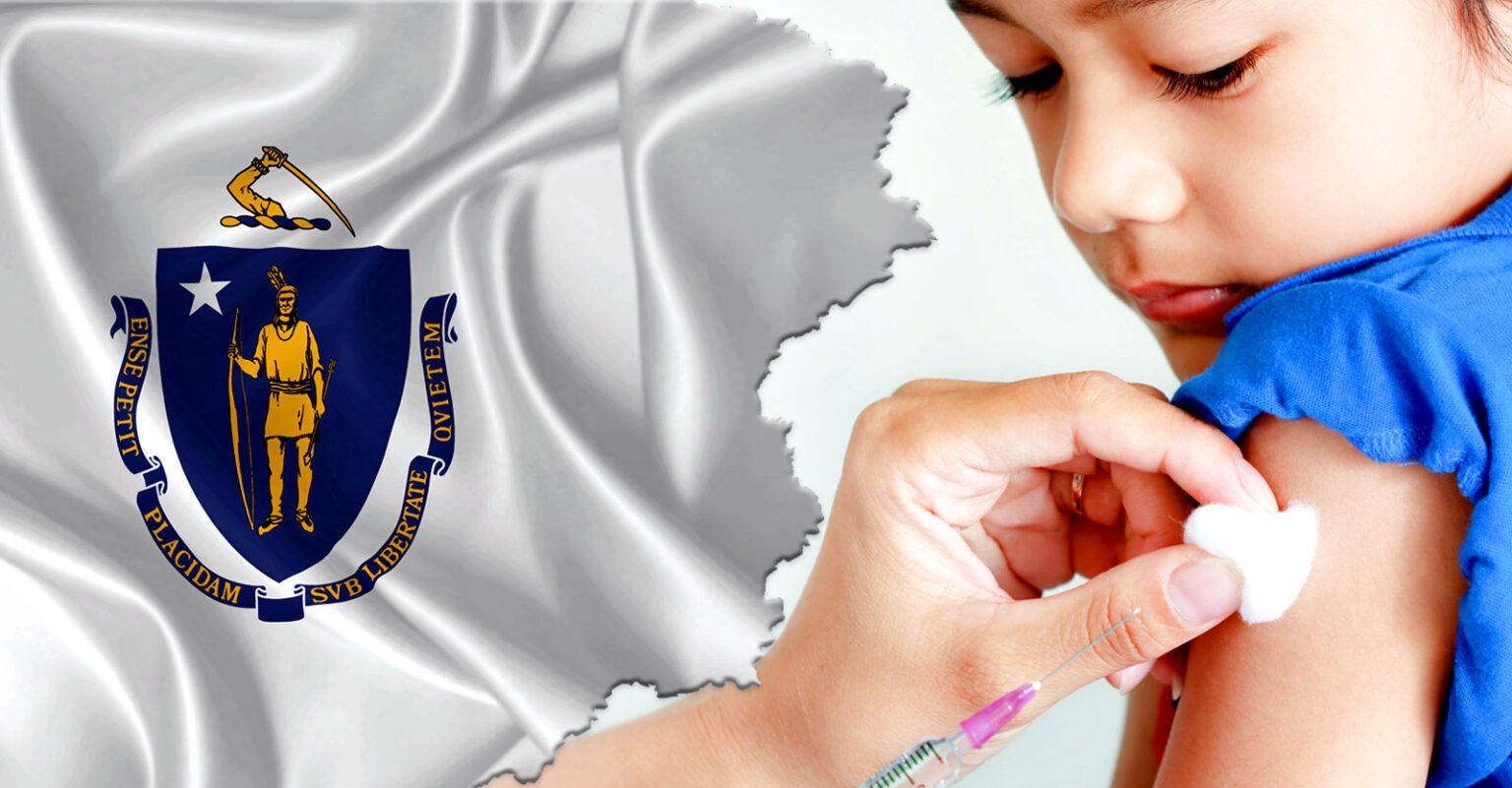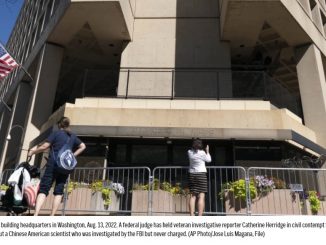
This makes no sense.
betsy@advocatz.com
Editor, Parentadvocates.org
Editor, New York Court Corruption
Editor, National Public Voice
Editor, NYC Public Voice
Editor, Inside 3020-a Teacher Trials
Toxic Exposures
Massachusetts Proposes Laws to Remove Religious Exemptions, Parental Consent for Vaccines
If lawmakers pass all three proposed bills, children whose families object to school-mandated vaccinations based on sincerely held religious beliefs will be barred from attending public and private K-12 schools, and minors will be able to consent to “preventative care,” including vaccines, without parental knowledge or consent.
Versions of the bill seeking to remove religious exemptions were introduced in the Massachusetts House of Representatives and Senate.
Beth Ingham, a leader of Children’s Health Defense’s (CHD) New England Chapter since 2022, called the proposed legislation “horrendous.”
If passed, children whose families object to school-mandated vaccinations based on sincerely held religious beliefs would be barred from attending public and private K-12 schools, according to Health Action Massachusetts.
Massachusetts’ lawmakers are also considering An Act Promoting Community Immunity, a bill that would undermine religious exemptions for school-based vaccine mandates and remove parental consent for vaccines in some cases.
According to Health Rights MA, the community immunity bill would:
- Allow minors to consent to preventative care, including vaccination, without parental consent or knowledge.
- Allow private daycares, schools and colleges to refuse religious exemptions and impose additional vaccines like the COVID-19 shots, which are not required by the Department of Public Health (DPH).
- Subject the religious and medical exemptions to state approval.
- Grant DPH expansive authority to change immunization and exemption requirements.
- Require doctors to sign religious exemptions.
- Allow DPH to publicly label programs with immunization rates below a state-defined threshold as “Elevated Risk” and exclude healthy, unvaccinated children, even in the absence of an outbreak or emergency.
Candice Edwards, executive director of Health Action Massachusetts, told The Defender that the state’s Joint Committee on Public Health will soon announce a hearing date for the two bills.
“Once the hearing is scheduled, we’re asking people to show up in person” to testify about why they oppose the bills. “Given the climate specifically for the removal of the religious exemption, we need an army inside that State House testifying.”
Additionally, Massachusetts’ lawmakers are considering a third bill that ostensibly aims at “enhancing access” to abortion but would also allow minors to consent to “preventative care,” including vaccines, without parental knowledge or consent, the groups said on their websites. Versions of the bill have been introduced in both the House of Representatives and the Senate.
According to Health Action Massachusetts:
“An Act Enhancing Access to Abortion goes beyond abortion-related care by granting minors the ability to consent to all forms of preventative care, including vaccinations and sterilization, without parental consent or knowledge. It does not include any age delineations or mental capacity guidelines for minors making these decisions.”
This third bill is overseen by the Joint Committee on the Judiciary, rather than the Joint Committee on Public Health. Edwards said her organization will alert people as soon as there is any movement with the bill or a hearing scheduled for it.
Commenting on the ongoing fight to maintain the right to religious exemptions and parental consent in Massachusetts, Edwards said, “We’ve been fighting this since 2019, and it’s now become our lives to fight this and be on top of it.”
Not the first time Massachusetts lawmakers tried to remove religious exemptions
According to Ingham, the latest Massachusetts bills aren’t the first time the state’s lawmakers have tried to remove religious exemptions. During the COVID-19 lockdowns, lawmakers considered a bill that would have removed religious exemptions.
However, the bill never made it to a full vote due to “massive opposition.”
“It just kind of fizzled in committee” after hundreds of people voiced opposition to it during an online hearing, Ingham said.
She recalled:
“They invited people to come online … for three minutes each, and there were 400 or 500 people online and they let all of them testify. It was amazing. It went on for hours and hours and hours.”
The majority of those who testified spoke against the bill, she added.
Ingham said that Health Rights MA and Health Action Massachusetts have “really been involved with this from the get-go,” referring to the three new bills, by providing the public with information about what the bills would do and issuing action alerts.
West Virginia: ‘We’re still moving forward’
If religious exemptions are taken away in Massachusetts, the state would join a small handful of states that deny parents the right to object to school vaccine requirements on the basis of sincerely held beliefs.
California, New York, Connecticut and Maine allow only medical exemptions, not religious exemptions. However, Maine lawmakers are considering bills that would restore religious exemptions.
West Virginia denied religious exemptions until Jan. 14, when Gov. Patrick Morrisey signed an executive order allowing religious exemptions.
On March 24, West Virginia lawmakers defeated a bill that would have codified Morrisey’s Jan. 14 executive order allowing religious exemptions from mandatory school vaccinations.
The bill died in a 42-56 vote on the floor of West Virginia’s House of Delegates after passing the state’s Senate in a 20-12 vote in February.
Despite the bill’s failure to pass during this year’s legislative session, West Virginia parents can still apply for a religious exemption under Morrisey’s executive order, said Chanda Adkins, president of West Virginians for Health Freedom.
The group said it will continue to pressure elected officials during next year’s legislative session to get religious exemptions officially codified into law. “We’re still moving forward,” Adkins told The Defender.
Adkins credited West Virginia’s progress so far to the many parents and guardians — “even the grandparents” — who spoke to their elected officials about how important it is to them to have religious exemptions to vaccine mandates.
West Virginians for Health Freedom has been around since 2016. “We do not plan to abort the mission until there are no mandates,” Adkins said.
Hawaii: ‘The push to erase religious exemptions is still alive and well’
Meanwhile, the battle to keep religious exemptions continues to brew after Hawaii lawmakers, under pressure from constituents, voted on March 4 to table a bill that would have repealed the state’s religious exemption from vaccine mandates.
Rep. Diamond Garcia, House minority floor leader, who opposed the bill, told The Defender, “HB1118 may be dead for now, but make no mistake — the push to erase religious exemptions is still alive and well.”
House Bill 1118 was part of the “governor’s package,” a set of proposed bills that make up Gov. Josh Green’s legislative agenda.The bill, introduced in January in the House and Senate, aimed to curb the growing rates of non-medical exemptions in the state over the last 10 years.
However, the proposed legislation encountered stiff pushback from the public and grassroots organizations in Hawaii, who responded with letters, public statements and rallies opposing the bill.
Constituents submitted more than 2,000 written statements to state lawmakers opposing the bill and just over 100 supporting it.
Garcia called the bill a “direct assault on people of faith.”
“We’re not backing down,” he said. “I will fight any attempt to force families to choose between their convictions and compliance. The government has no business interfering in matters of conscience. We didn’t win the war — we won a battle. And we’ll be ready for the next one, because freedom is always worth defending.”
Related articles in The Defender
- Hawaii Kills Bill to End Vaccine Exemptions After Massive Pushback From Public
- 8 States Weigh Bills to Establish or Expand Exemptions to School Vaccine Mandates
- Public Support for Religious Exemptions Nearly Doubled Over Past 6 Years
- Distrust in Vaccines Grows Among U.S. Adults, Survey Shows
- Record Number of Louisiana Parents Opt Out of Back-to-School Vaccines
 Suzanne Burdick, Ph.D.
Suzanne Burdick, Ph.D.
Suzanne Burdick, Ph.D., is a reporter and researcher for The Defender based in Fairfield, Iowa.



